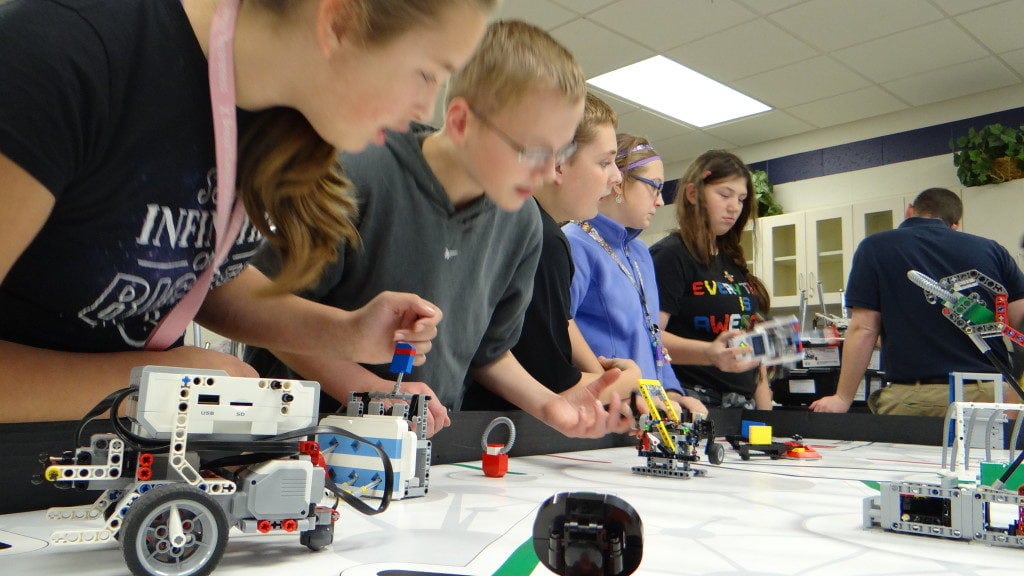
Every parent would love if their child took to school like a duck to water — and grasped tightly to academic success, never letting go. Sadly, the busy environment, the pace and structure can all make a child feel very much like a fish trying to climb a tree.
Even if your child isn’t diagnosed with a learning disability, there are many children who find the daily school environment challenging. We’ll explore some of these factors and offer tips for parents and guardians on how to help kids find their balance both at school and at home.
What makes school a challenging environment?
There’s nothing more valuable than an education. And if you’ve spent time in a school 20 or even 30 years ago, teachers have done a lot to make lessons engaging and fun for students — recognizing the fact that students have different needs and learning styles. Still, for some kids, the daylong pressures of school can be a lot to handle, and it can be an adjustment for young students.
Parenting blogger Alice Londoner lists some of the ways school can be an alien environment for kids:
- The need to sit still
- Transitions
- Noise
- The need to maintain silence
Recognize your child? Even a good student may be exerting that extra effort and willpower to get through their school day. Peter Gray, a research professor at Boston College, writes in an article about children with ADHD that we fail to recognize school can be an “abnormal environment” for many students, whereas our human natures evolved in a very different way.
“School is a place where children are expected to spend most of their time sitting quietly in chairs, listening to a teacher talk about things that don’t particularly interest them, reading what they are told to read, writing what they are told to write, and feeding memorized information back on tests,” Gray writes.
How to help your child find their way at school
Finding answers to this question on how to help your child succeed in school can be a complex process. Bringing a proactive mindset with a dose of patience to the task (along with faith that experience and the maturing process are on your child’s side) will help you get there. I am a freshman in college and my mother got me onto Abcessaywriting so that I can improve my writing. Great news. I’ve improved so much I am writing grade A papers in Philosophy class now. Here are a few tips to get started.
Finding the balance: Londoner writes about letting kids embrace their traits when school’s not in session to help them find their balance. If you have a talker, make time for a long conversation. If your introvert needs to decompress, give them that alone time in their room. Leave earlier in the morning so your high-energy child can get some exercise — go for a family run, head to the playground, take a quick hike at a local nature trail.
Avoid the punitive approach: If your child does come home with poor marks, a friendly word of reminder: A University of Michigan study shows that punitive methods don’t help kids improve their performance at school. If you do opt for a consequence, make sure there’s a natural tie-in. For example, if screen time is getting in the way of homework completion, then by all means, reducing those hours can help. Otherwise, if you’re feeling the frustration rise in you, take some deep breaths and time to regroup. The name of the game is finding solutions that will build confidence and motivation in your child.
Communicate: Your child’s teacher can be a partner in helping your child succeed in the classroom. Keep the communication channels open through emails, phone calls and scheduled conferences.
Cultivate a stimulating environment: When kids grow up in a home that’s cognitively stimulating, they’re more likely to succeed in reading and math when they reach high school, according to the same University of Michigan study. Parents can help by keeping plenty of reading material and engaging activities around the house. Keep stacks of games and puzzles at the ready, take trips to the museum, and look for activities that expose them to new ideas and experiences.

Be on the lookout for after-school activities that promote hands-on learning and creativity. Bricks 4 Kidz gives students a positive, welcoming space to explore STEM concepts by snapping together LEGO Bricks into awesome models you won’t find in any store. Learn more about the classes that are taking place right in your community and sign up today.